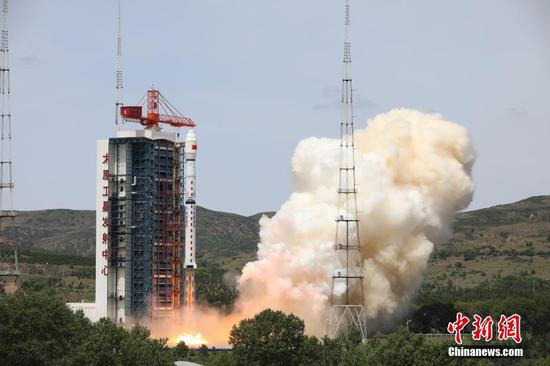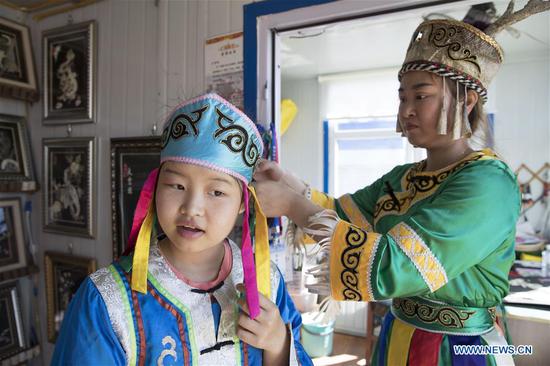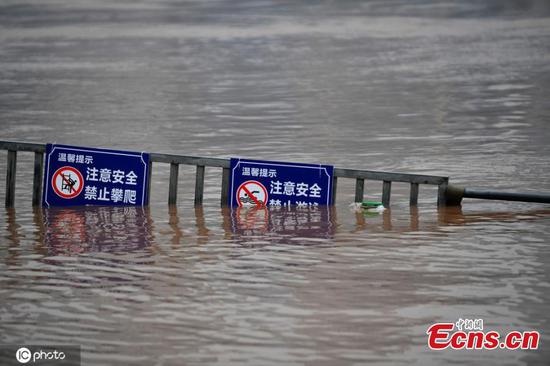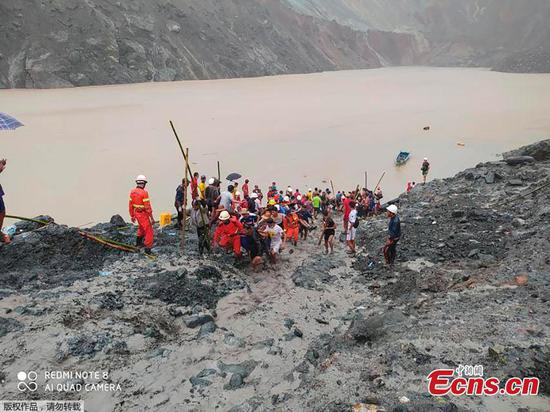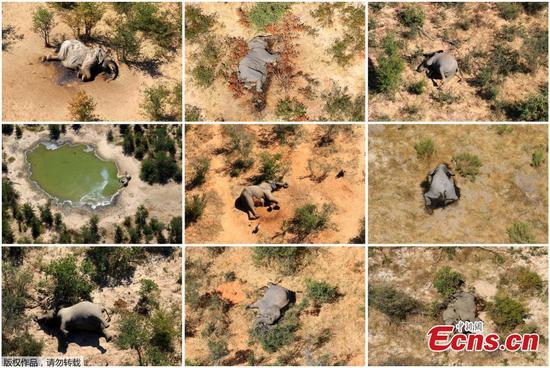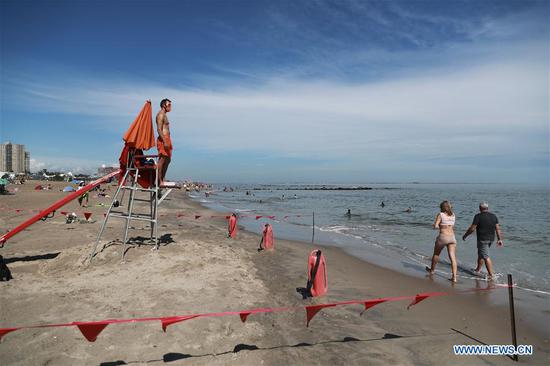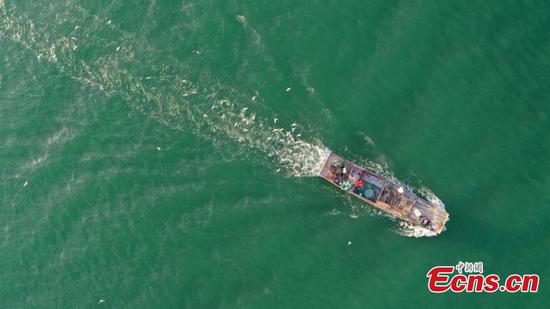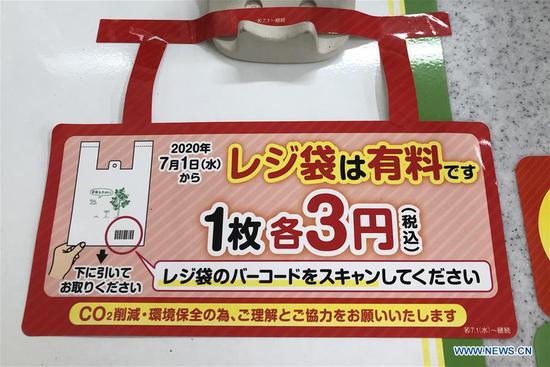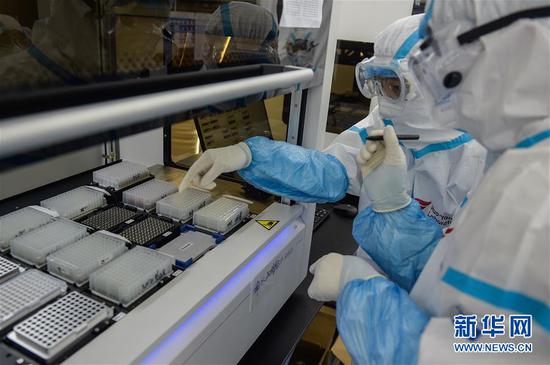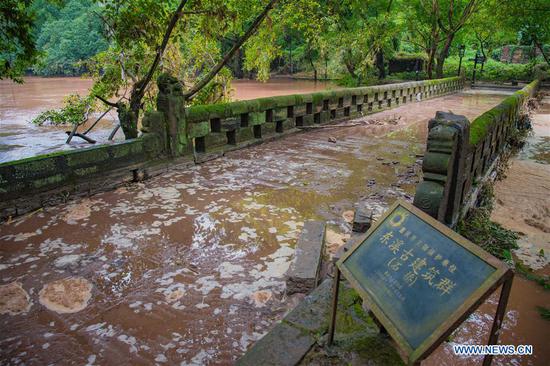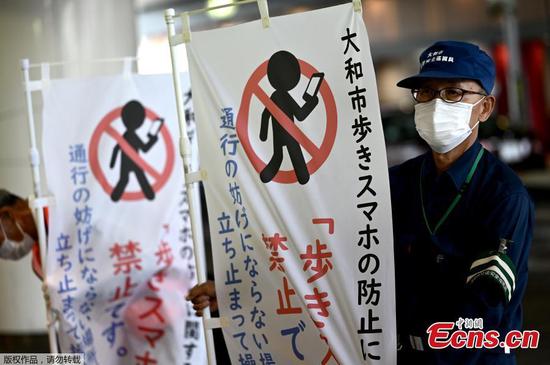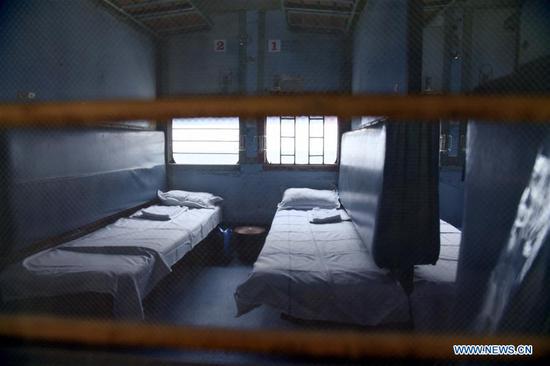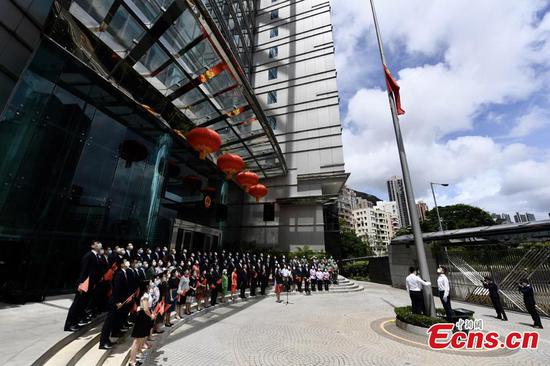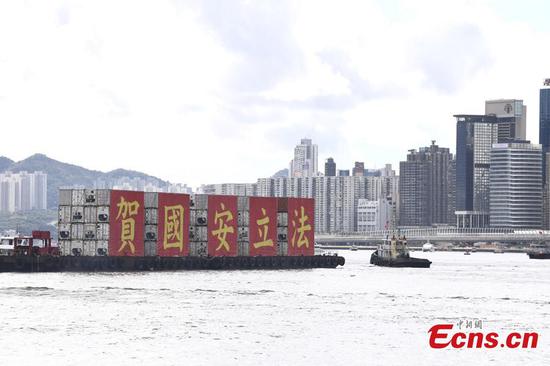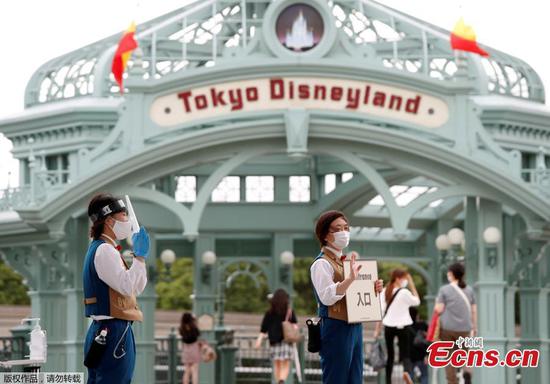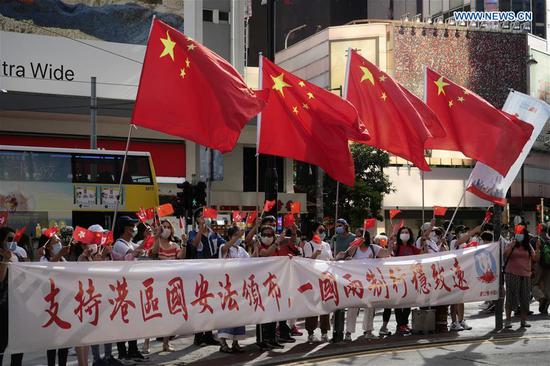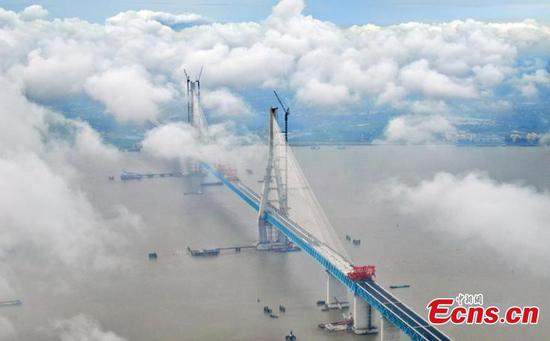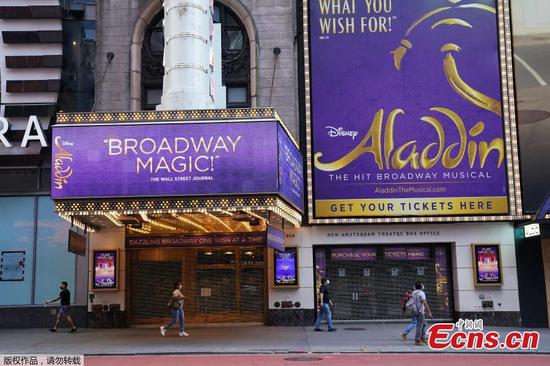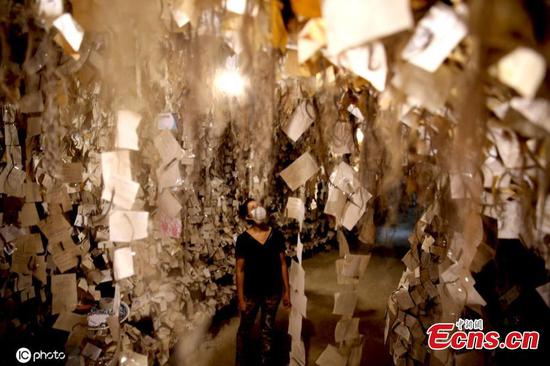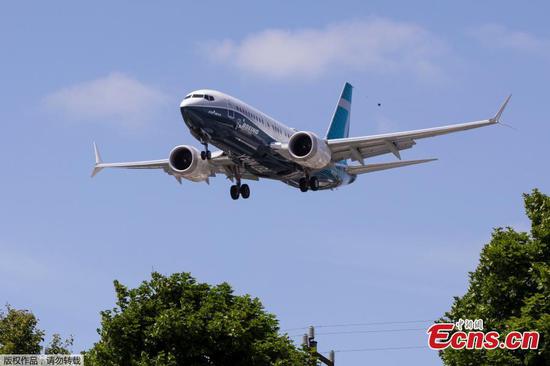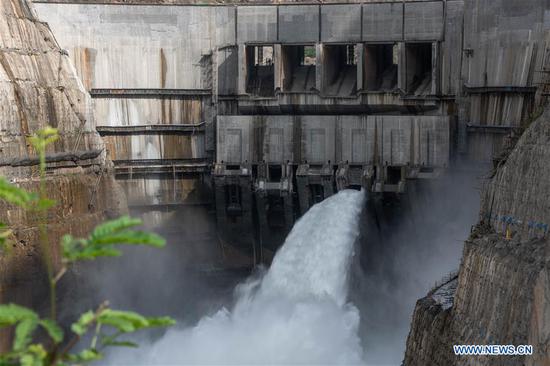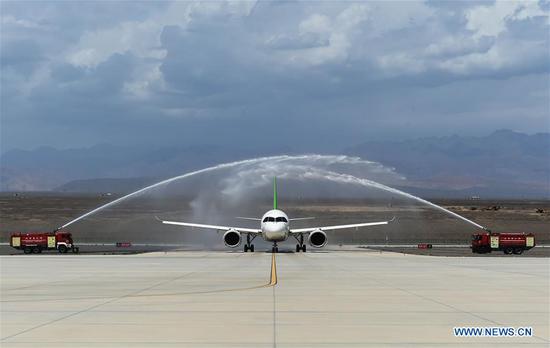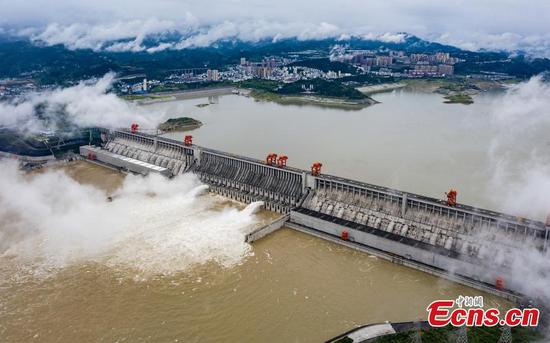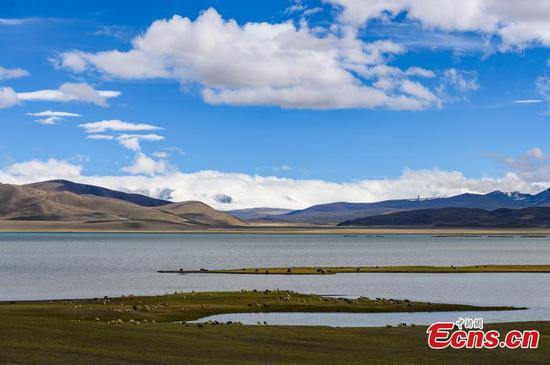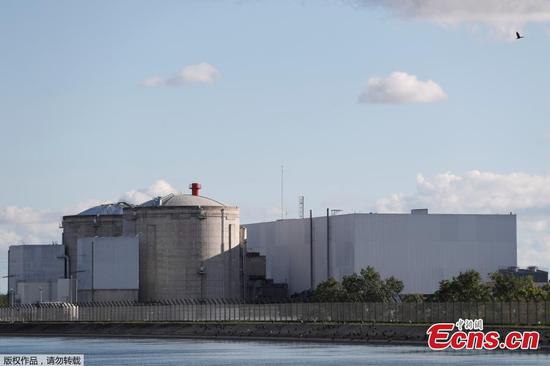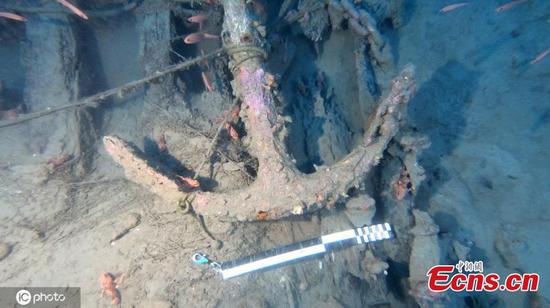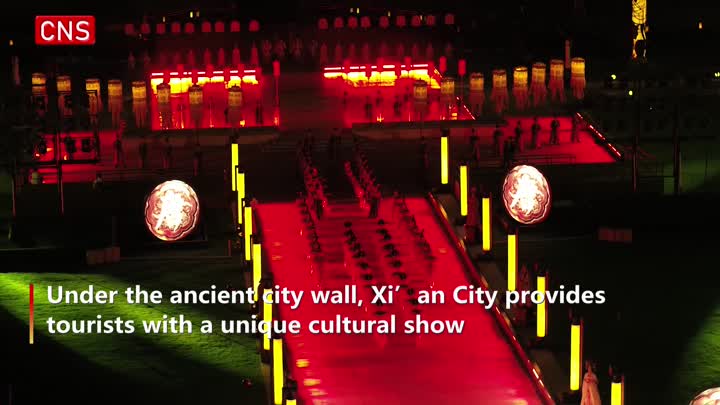6. False: The legislation on safeguarding national security in Hong Kong violates China's commitments and obligations under the Sino-British Joint Declaration.
True:
◆The legal basis for the Chinese government to govern Hong Kong is the Chinese Constitution and the Basic Law of the Hong Kong SAR. The Sino-British Joint Declaration is not relevant in this regard. As China resumed the exercise of sovereignty over Hong Kong in 1997, all provisions concerning the UK under the Joint Declaration had been fulfilled. The UK has no sovereignty, jurisdiction or "right of supervision" over Hong Kong after its return.
◆The basic policies regarding Hong Kong stated by China in the Joint Declaration are not commitments to the UK, but China's declaration of its policies, which have since been fully embodied in the Basic Law enacted by the National People's Congress (NPC). These policies have not changed; they will continue to be upheld by China.
7. False: The legislation on safeguarding national security in Hong Kong has been unilaterally imposed on Hong Kong by the Central Government of China.
True:
◆National security legislation has always been a matter concerning the sovereignty of the State and within the purview of the Central Authorities. The Central Government of China assumes the primary and ultimate responsibility for safeguarding national security. As the highest organ of State power in China, the NPC has established and improved, at the State level, the legal system and enforcement mechanisms for safeguarding national security in Hong Kong. This is vital for plugging the legal loopholes relating to national security in Hong Kong and effectively protecting national security. It is also a fundamental measure for ensuring the steady and sustained implementation of the policy of One Country, Two Systems.
◆Article 23 of the Basic Law stipulates that the Hong Kong SAR shall enact laws on its own to safeguard national security. Nearly 23 years after Hong Kong's return to China, however, the relevant legislative process is still not materialized due to the sabotage and obstruction by anti-China, destabilizing elements in Hong Kong as well as hostile forces from the outside. Faced with the grave situation in safeguarding national security in Hong Kong, the Central Government has both the power and the responsibility to promptly plug the loopholes and strengthen the weak links.
◆The Macao SAR passed in early 2009 its Law on Safeguarding National Security, and has conducted, in a well-ordered manner, relevant law enforcement work and study of supportive legislation for safeguarding national security. In 2018, the Macao SAR Government set up a committee for safeguarding national security to coordinate and enforce local initiatives relating to national security. It has continued to improve its legal system, institutions and enforcement mechanisms for safeguarding national security.
◆The UK applied the Treason Act to Hong Kong with specialized enforcement agencies during its colonial rule. But now it is making groundless accusations against the legislation on safeguarding national security in Hong Kong enacted by China's central authorities. This is pure double standards.
8. False: No meaningful consultation over the legislation on safeguarding national security in Hong Kong was held with the people in Hong Kong. Therefore, the legislation lacks public support.
True:
◆The legislative process fully demonstrates the shared will of all Chinese people, including the Hong Kong compatriots. In drafting the Law, the Central Authorities and relevant departments had solicited through various means and channels opinions and suggestions from the Chief Executive and other principal officials of the Hong Kong SAR Government, the President of the Legislative Council, representatives from the legal community of Hong Kong, members of the Hong Kong Special Administrative Region Basic Law Committee, NPC deputies, members of the Chinese People's Political Consultative Conference (CPPCC), etc. In the revision and refinement of the draft, the views and suggestions from the Hong Kong SAR Government were carefully studied and accepted as much as possible, and Hong Kong's actual conditions were fully considered. Thanks to these efforts, the legislative process was carried out in a well-conceived and democratic way and in accordance with law.
◆Relevant departments of the Central Authorities held 12 symposiums in Hong Kong, at which 120 representatives from, among others, the political, legal, business, financial, educational, scientific, cultural, religious, youth and labor sectors as well as social and local organizations in Hong Kong candidly expressed their opinions. The Liaison Office of the Central People's Government in the Hong Kong SAR received more than 200 written opinions from 36 Hong Kong deputies to the NPC and 190 Hong Kong members of the CPPCC National Committee in a short period of time. People from all walks of life in Hong Kong were also able to express their opinions via email, letters or the official NPC website.
◆The relevant Decision of the NPC received support from representatives of all sectors in Hong Kong immediately after its release. Nearly three million people in Hong Kong have signed a petition in support of the enactment of the Law, and more than 1.28 million have signed an online petition opposing the interference by the US and other external forces.
9. False: The legislation on safeguarding national security in Hong Kong marks the end of One country, Two systems and deprives Hong Kong of its high degree of autonomy.
True:
◆The NPC decision makes it clear, from the very beginning, that the State resolutely, fully and faithfully implements the policy of One Country, Two Systems under which Hong Kong people administer Hong Kong with a high degree of autonomy. This commitment was reaffirmed in Article 1 of the legislation on safeguarding national security in Hong Kong. The goal of this legislation is to close the critical loophole in national security in Hong Kong, cement the foundation of One Country, and provide maximum safeguard for Hong Kong to harness the strengths of Two Systems on the basis of upholding One Country.
◆The enacted legislation will not affect the rights and freedoms enjoyed by Hong Kong residents under the law. It will not affect the HKSAR's independent judicial power, including that of final adjudication. There will be no change to the policy of One Country, Two Systems, the capitalist system, the high degree of autonomy, or the legal system of the Hong Kong SAR.
10. False: The legislation on safeguarding national security in Hong Kong will jeopardize Hong Kong's prosperity and stability.
True:
◆Quite the contrary, the legislation on safeguarding national security in Hong Kong will contribute to Hong Kong's prosperity and stability. Since the turbulence over proposed legislative amendments last June, the "Hong Kong independence" groups and violent terrorist acts have dealt a heavy blow to Hong Kong's rule of law, economy and livelihood. The city's business environment and international image has also been severely damaged. The legislation is designed precisely to reverse that situation. It will help Hong Kong sustain a favorable business environment, consolidate and elevate its status as a financial, trade and shipping center, and bolster the confidence of foreign investors. After its adoption, the NPC decision received explicit support from many Hong Kong-based foreign-invested corporations, including HSBC, Standard Chartered, Swire and Jardines. They are all convinced that the legislation will contribute to the lasting stability of Hong Kong, and serve as the very foundation and prerequisite for all development.
◆Around the globe, be it New York or London, no international financial center will see its business environment undermined by the enforcement of a national security legislation. A recent survey by the American Chamber of Commerce in Hong Kong shows that more than 70 percent of companies don't have plans to move capital, assets, or business operations from Hong Kong, and more than 60 percent of the respondents personally don't consider leaving the city. No businesses will turn against opportunities and profits.
◆The Macao SAR passed its national security legislation in 2009 in accordance with Article 23 of its Basic Law. From 2009 to 2019, Macao's GDP soared by 153 percent, its number of tourists up by 81 percent, and its overall unemployment rate down to a ten-year low.










